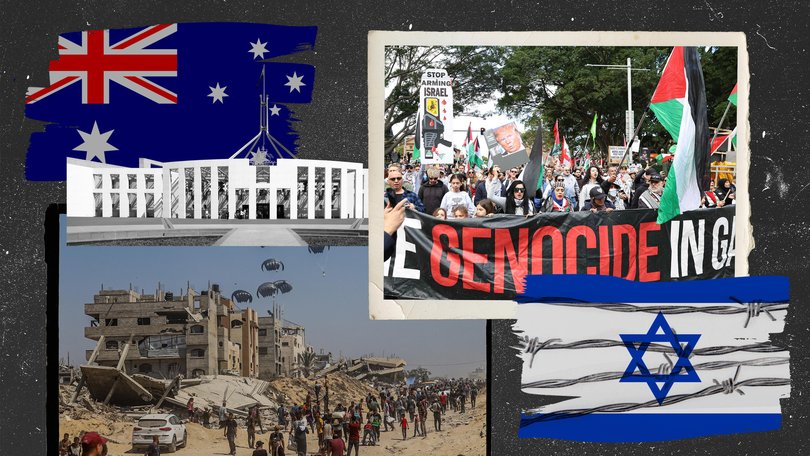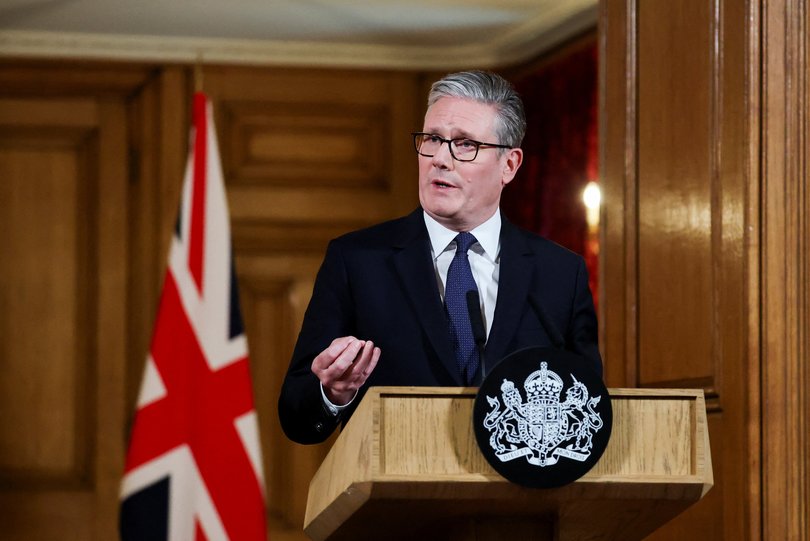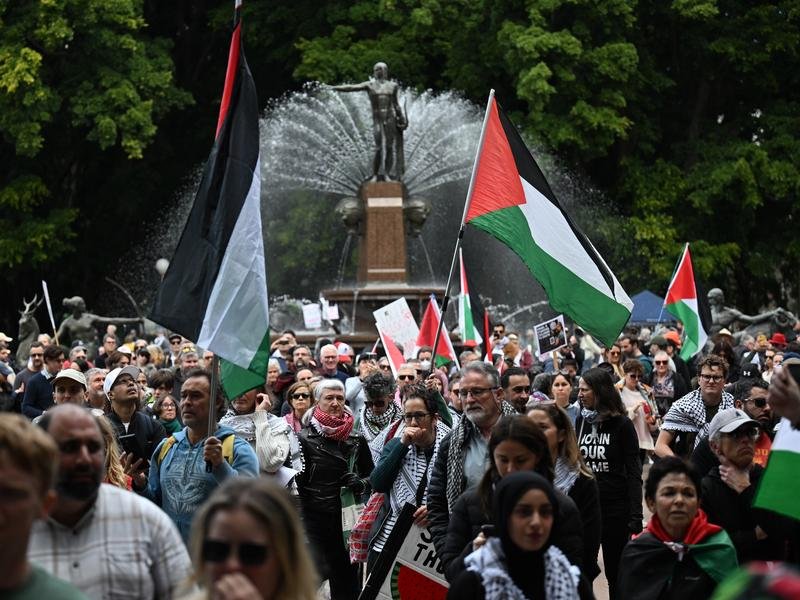AARON PATRICK: On recognition of Palestine, Australian Jews find an unexpected ally in PM Anthony Albanese
AARON PATRICK: While Jewish organisations condemn moves towards opening formal diplomatic relations with the Palestinian Authority, some leaders are quietly happy with Anthony Albanese.

On Saturday, France said it would recognise Palestine as a state, the first G7 member to do so. Britain moved on Tuesday, followed by Canada overnight.
The Western alliance that has long supported Israel is cracking. Many Palestinian supporters hoped Australia would widen the split by switching sides on recognition, an important point of principle that would signal disappointment bordering on hostility towards Benjamin Netanyahu’s Government.
But Australia’s small Jewish community found some unexpected support from Anthony Albanese, whose Government has been moving away from Israel over the past year.
Sign up to The Nightly's newsletters.
Get the first look at the digital newspaper, curated daily stories and breaking headlines delivered to your inbox.
By continuing you agree to our Terms and Privacy Policy.Even while the prime minister accused Israel of breaching international law, he placed conditions on Palestinian recognition that heartened Jewish leaders who have spent decades working to woo Labor Party leaders to the cause of the Jewish State.
While those leaders publicly warn recognition would embolden Hamas, in private some are more sanguine about Australia’s position.

Conditions
Apart from a demand to release the 20-odd hostages still alive, a list of requirements from Mr Albanese was so extensive they would require wholesale changes in the Palestinian’s approach to the conflict.
They are led by the disarmament of Hamas, which would likely end its control of the Gaza Strip. Others include terminating payments to families of Palestinians imprisoned in Israel or killed in attacks in Israel, which are said to encourage violence; removing anti-Jewish content from school textbooks that glorifies violence and martyrdom; and committing to elections within a year. The Palestinians haven’t had a presidential election since 2005.
The Palestinians would also have to accept that their independent nation would have no standing army, making a State of Palestine stretching from the “river to the sea” unlikely.
“At the least it’s encouraging,” said Colin Rubenstein, the executive director of the Australia Israel & Jewish Affairs Council, a right-wing lobby group. “He has specified certain prerequisites which I think is good.”
A prominent Jewish leader who was highly critical of the Government’s response to anti-Semitic attacks last year said he did not believe recognition is imminent. The Government’s conditions, if enacted, could help deliver peace to what many people believe is an intractable war, he said.
“Anthony Albanese has been disciplined in what he has been saying,” he said. “He’s much more balanced than before the election.”

Inevitability
Not everyone is convinced. The Executive Council of Australian Jewry said recognising Palestine without removing Hamas from power would be “worse than an empty gesture”. Asked on Thursday if he believes the Government will recognise, a Jewish former Labor MP, Michael Danby, said: “Sadly, yes.”
Treasurer Jim Chalmers said that step was inevitable. “From an Australian point of view, recognition of the State of Palestine is a matter of when, not if,” Dr Chalmers said Thursday.
Countries that regard Palestine as a country, rather than two areas split between Israeli and Palestinian control, tend to vote against Israel in the United Nations. If public opinion towards Israel hardens, Mr Albanese could drop the conditions and recognise Palestine, joining 147 other countries that regard Palestine as a country, rather than two areas split between Israeli and Palestinian control.
Over the past year Foreign Minister Penny Wong has shifted Australia’s diplomatic position towards support for international recognition. On Tuesday she went further by joining 14 other Western countries to encourage them to consider recognising the State of Palestine “as an essential step towards the two-State solution”.
In the past, Australia said a Palestinian state would have to come into existence before it be could recognised. The position assumed an incentive was needed to convince Palestinian leaders to agree to peace with Israel.

Embassy upgrade
Under the new approach, the logic has switched. By diplomatically isolating Israel, centre-left Western Governments argue they can signal disapproval with Israel’s tough policies in Gaza and the West Bank.
Mr Netanyahu’s Government is considering the annexation of parts of the Gaza Strip, according to a report in the Times of Israel.
Australian recognition of Palestine would not give President Mahmoud Abbas more control over two territories and 5 million people. But the Palestinian Authority’s representative office in Canberra would become an embassy, a title it already uses which is not accepted by the Australian Government.
A Department of Foreign Affairs and Trade office in Ramallah on the West Bank could be upgraded to an embassy too. DFAT would be able to donate aid directly to the Palestinian Authority without having to go through the United Nations and other international agencies, according to Donald Rothwell, an international law professor at the Australian National University.
But if the Palestinians held elections, they might chose Hamas, according to Professor Rothwell. That would leave Australia in the awkward position of swapping ambassadors with a government it regards as a terrorist organisation.
“History shows that once Australia bestows recognition on a state, it will not be revoked,” he wrote this week, “irrespective of how distasteful a foreign government or regime may be.”

